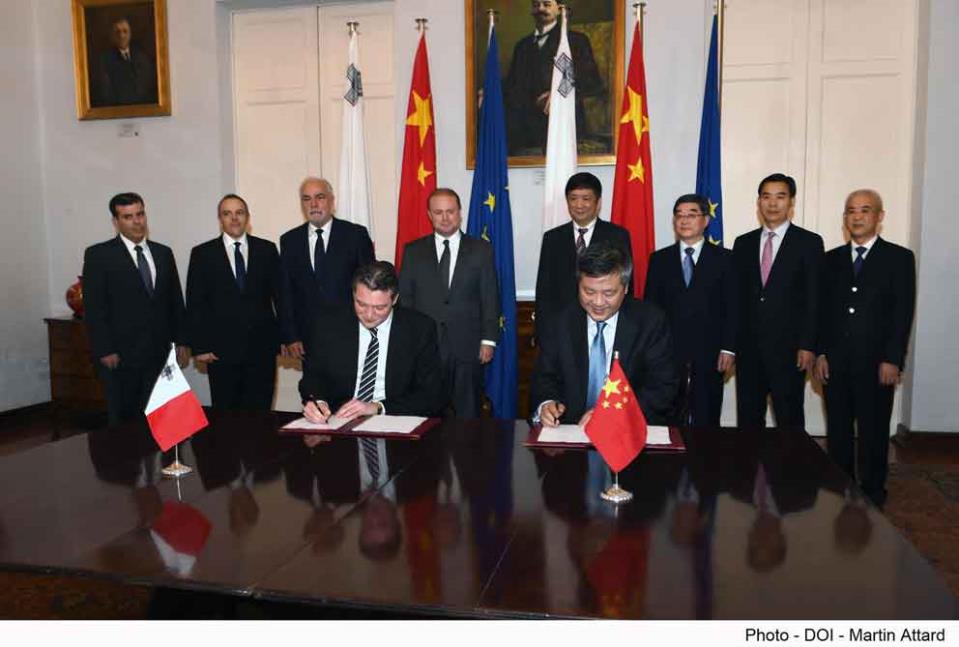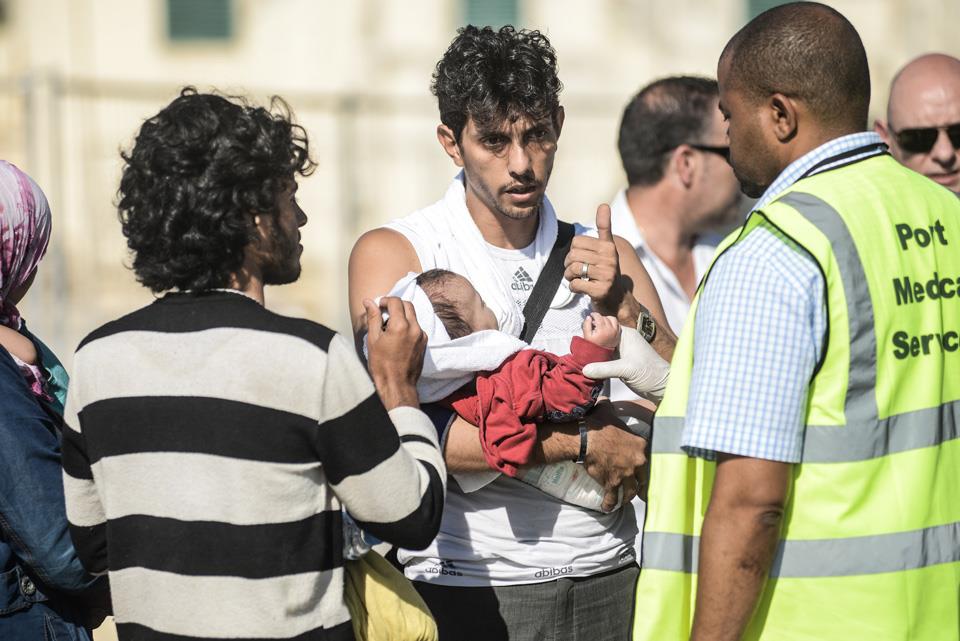Malta has been named the European Union’s greatest slacker when it comes to the bloc’s foreign policy objectives, according to the European Council on Foreign Relations’ annual European Foreign Policy Scorecard.
The annual study by the influential think-tank found Malta to be the EU’s top slacker, having failed to register as a leader in any of the study’s components while having been termed a ‘slacker’ in no less than three vital areas: pushing for a “European policy on privacy and intelligence”, “Speaking out or acting on human rights violations in China” and in ‘Development aid and humanitarian aid’.

Privacy and intelligence: slacker
Malta was labelled a slacker in the area of member states pushing for a European policy on privacy and intelligence. The report notes that the European Parliament increased pressure on the US to introduce safeguards to protect EU citizens’ privacy, including by voting for the break-up of Google – which had no legal impact but strengthened other efforts, driven by Germany, to increase regulation on US technology companies.
The report states: “While Austria and Italy led calls for a collective European policy on privacy and intelligence, with the Czech Republic, Denmark, Malta, The Netherlands, Sweden, and the UK the most reluctant.”
The issue had come to the fore in Malta last year when it was revealed how through the interception of data, Malta Security Service (MSS) has access to personal emails and internet history, as well as the ability to listen in on telephone conversations – all through a warrant granted by a single person, the minister in charge of MSS. The extent of the practice is, however, unquantifiable since the government does not even publish aggregate data.
Earlier revelations by Vodafone indicated that Malta is one of the most spied on nations in Europe, and this solely on the basis of metadata requested specifically by governments from Vodafone. This excludes similar requests to other Maltese telephony operators and also excludes interception data. Through the staggeringly high statistic of 3,773 requests from Vodafone in 2013, when put into the context of Malta’s relatively small population, reveals that on a per capita basis Malta has around 10 per cent more metadata requests than Italy, a country which has severe organised crime problems.
Metadata deals with the location of a device when messages are sent or when calls are made – the user’s current location, and other information about the user, while interception deals with actual content of phone calls through wire taps, as well as the content of messages and emails.
The majority of activities undertaken by MSS are within the purview of national security, and when asked this week in the wake of recent revelations by the Vodafone Group to reveal the annual number of intercepted communications since 2009, a Home Affairs Ministry spokesperson said: “Due to security reasons I cannot divulge [this] information.”

Snowden documents show Malta’s internet links tapped by GCHQ
The latest cache of documents released by US National Security Agency contractor turned whistleblower Edward Snowden, shows that Malta’s internet communications to and from the rest of the word have been tapped by the UK’s Government Communications Headquarters (GCHQ).
Documents from Snowden’s latest cache of documents show that in 2009, GCHQ – and probably by association the US National Security Agency, both of which have been implicated by Snowden’s revelations as close cohorts in wide-ranging espionage activities – had access to the traffic on 63 submarine cable links around the globe, Malta’s submarine cable link to Italy included.
The tapping of Malta’s internet link to Italy forms part of an extensive list of submarine cables that have been tapped by the GCHQ, according to a set of Snowden documents made public this week by German newspaper Süddeutsche Zeitung.
The cables listed in Snowden’s latest release handle the vast majority of international internet traffic as well as private network connections between telecommunications providers and corporate data centres.
In the Snowden documents, the Malta-Italy cable is specifically listed as having been tapped, and it gives the “partner cable’s” name the code name of ‘street car’, aka Interoute. In January 2009, European voice and data operator Interoute completed more than 300 kilometres of undersea fibre optic cable in the Mediterranean, providing a connection for Malta to Italy and from there to the rest of the world.

The tapping of Malta’s submarine link to the outside world could also be related to the NSA’s blanket authority it had been given by the US government to spy on foreign governments, including the Maltese government.
This newspaper had revealed recently how, for the first time since Snowden last year revealed the extent of the US government’s espionage on foreign governments, it was shown that the NSA has been ‘authorised’ since at least 2010 to spy on the Maltese government and components.
The revelation, which was most likely be news to the Maltese government, came in the form of a top secret document of the US Foreign Intelligence Surveillance Court that ‘authorised’ the NSA to spy on “foreign governments or any components thereof” – a list in which the Maltese government features along with most other countries.
The Washington Post recently published a document classified as “Top Secret” by the US Attorney General, 21 years before the document’s designated declassification date of 15 July 2035.
The document lists a total of 193 foreign governments as well as foreign factions, political organisations and other entities that were part of a 2010 certification approved by the US Foreign Intelligence Surveillance Court, also called the FISA Court.
The list comprises entities on which the NSA may conduct surveillance for the purpose of gathering foreign intelligence and intercepting information concerning the entities on the list.
The NSA is empowered to “intercept through US companies not just the communications of its overseas targets but any communications about its targets as well”.

Speaking out on China’s human rights violations: slacker
According to the ECFR report, Malta is the least outspoken member state when it comes to speaking out or acting on China’s human rights violations, while Germany, Ireland, and Sweden were the most outspoken last year.
The report notes that 2014 was another disappointing period for the EU on human rights policy towards China. The EU issued a number of statements on freedom of speech and human rights in general, on particular cases such as those of Ilham Tohti and Xu Zhiyong as well as on the democracy protests in Hong Kong. But, fearing retaliation or a deterioration of their bilateral relations with China, most member states were reluctant to support the EU. Member states say they “mentioned” and “raised” human rights in multilateral and bilateral meetings, but direct criticism was rare. Some member states, such as France, went as far as banning certain demonstrations during visits by Chinese officials.
A 2013 report by the ECFR, a Power Audit of EU-China Relations, had labelled Malta as one of the EU member states preventing the Union from developing a more assertive stance with China on issues such as Tibet or human rights, and placing commercial interests ahead of human rights considerations according to the European Council on Foreign Relations’ Power Audit of EU-China Relations published on Friday.
In its report, the ECFR placed Malta in the group of “accommodating mercantilists” that shuns political confrontation with China in favour of commercial interests and which, through their refusal to bring pressure to bear on China on political issues, have “often kept the EU from developing a more assertive stance on issues like Tibet or human rights”.
The report notes specifically that Malta stands in favour of lifting the EU’s arms embargo against China that has no domestic lobby on human rights.

Development aid and humanitarian aid: slacker
The ECFR report finds that preliminary figures suggest that European development budgets remained roughly level in 2014, although a number of EU members (Austria, Belgium, Croatia, Lithuania, Malta, The Netherlands, Poland, Portugal, and Romania) made cuts. As such, Malta was termed a slacker in the area.
After years of reductions, Italy managed a modest increase to its aid spending this year, while Spain hopes to reverse a long decline in its spending in 2015. Denmark, Estonia, Germany, Latvia, Luxembourg, Sweden, and the UK also maintained or raised aid levels.
A recent report by the Publish What You Fund group had labelled Malta as “very poor” in its aid transparency index, putting Malta in 64th place out of 68 aid donor organisations and countries surveyed. The ensuing report argued that a large majority of the world’s donors were not sharing enough information relating to their activities.
Malta, just four places above last place (China), is not a member of the International Aid Transparency Initiative (IATI), however is part of the EU’s collective commitment to both the EU Transparency Guarantee and the Busan common standard, of which IATI is a core component, the report said.